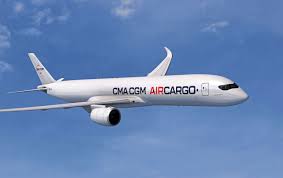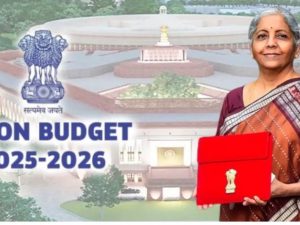Vipin Vohra, Chairman, Continental Carriers said, “The government’s strong push for infrastructure upgradation and warehousing development, particularly for air cargo, high-value perishables, and agriproducts, is a game-changer. The latest Union Budget’s emphasis on infrastructure development, regulatory improvements, and enhanced connectivity reflects a strategic vision to transform India into a global aviation leader. These advancements will drive economic growth, improve supply chain efficiencies, and position India as a key global aviation hub by 2030, boosting exports and competitiveness.”
Read More »‘Govt will support domestic industries for leveraging export opportunities’
Sunil Kohli, MD, Rahat Cargo said, “The Budget has proposed several steps to promote agri and perishable products under ‘Prime Minister Dhan-Dhaanya Krishi Yojana’ in partnership with states covering 100 districts to increase productivity, adopt crop diversification, augment post-harvest storage, improve irrigation facilities, and facilitate availability of long-term and short-term credit. The Budget has outlined measures to Comprehensive Programme for Vegetables & Fruits, National Mission on High Yielding Seeds. The government will facilitate upgradation of infrastructure and warehousing for air cargo including high value perishable horticulture produce. The Finance Minister mentioned that support will be provided to develop domestic manufacturing capacities for our economy’s integration with global supply chains. She also announced that government will support the domestic industries for leveraging the opportunities related to export fraternity. Every effort will also be made by the government to upgrade the infrastructural facilities at the airports to promote exports.
Read More »‘Increased capital allocation for modernising warehousing, cargo screening will enhance efficiency’
Reshma Zaheer, CEO, TT Logistics & Cargo and President, ACFI Women’s wing said, “The Indian government’s focus in the Union Budget 2025 on upgrading air cargo infrastructure, particularly for perishables and agricultural products, is a welcome step. It acknowledges air cargo’s crucial role in economic development and trade competitiveness. Increased capital allocation for modernizing warehousing, streamlining customs, and improving cargo screening will enhance efficiency, reduce clearance times, and support the movement of goods. These efforts will foster sector growth and help achieve the ambitious target of handling 10 million tonnes of air cargo by 2030.
Read More »‘Enhanced cold chain infra, customs will reduce transit time & improve exports’
Arun Kumar, President, AMTOI said, “The Indian government’s focus on upgrading air cargo infrastructure and warehousing, especially for high-value perishables and agri-products, will significantly boost air cargo growth. Enhanced cold chain facilities, modernised cargo terminals, and streamlined customs processes will reduce transit time, minimise wastage, and improve global market access for Indian exports. Initiatives like Krishi Udan and improved multimodal connectivity will further drive volumes, making India a competitive hub for agri and perishable exports, strengthening overall air cargo demand in the coming months.”
Read More »‘Strategic investments in air cargo facilities must to support & expand trade’
Kamal Jain, Director, Cargomen Logistics said, “Air cargo is the fastest mode of transportation and is primarily used in scenarios where goods are urgently required, have a short shelf life, or require rapid economic value realisation. This makes it the ideal choice for perishable goods, be it high value pharma perishable or fruits and vegetables, where timely delivery is crucial to maintain quality and prevent spoilage. Government investment in air cargo infrastructure plays a significant role in boosting cargo movement and throughput. By developing better infrastructure for the storage and movement of perishable cargo, we can facilitate trade of such goods. This, in turn, leads to a rise in air cargo movement and contributes to the overall growth of the air cargo sector. Without adequate infrastructure, trade in perishable products remains limited. Therefore, strategic investments in air cargo facilities are essential to support and expand the trade of perishable commodities like fruits and vegetables, ultimately driving the development and growth of the air cargo industry.
Read More »CargoAi, CMA CGM join forces to enhance cargo bookings
CargoAi announced a strategic partnership with CMA CGM Air Cargo, a division of CMA CGM Group to enhance airfreight booking capabilities on CargoMART, CargoAi’s cutting-edge platform for freight management, by integrating CMA CGM AIR CARGO’s extensive network across their network. Following a successful testing period, CMA CGM Air Cargo will now extend its digital booking capabilities to include CargoAi as one of its partners. This partnership will provide freight forwarders with a seamless, efficient booking experience and access to a comprehensive network of routes. Matt Petot, CEO of CargoAi, expressed his enthusiasm about the new partnership: “We are delighted to collaborate with CMA CGM AIR CARGO, a prominent leader in the air cargo industry. This partnership highlights our dedication to providing best-in-class digital solutions that optimize operations and drive efficiency in the air cargo sector.” CargoMART provides a range of features including real-time capacity and rate visibility, quoting, e-Booking, and Track and Trace functionalities. One differentiating feature of the platform is the ability to compare flight options by carbon emissions, track CO2 emissions at a shipment level, and purchase sustainable aviation fuel (SAF) whenever required. With the integration of CMA CGM AIR CARGO’s network and products, CargoMART users will benefit from more options and enhanced booking flexibility when booking capacity that meets their needs. Following the integration, CMA CGM AIR CARGO will have exposure to more than 17,000 freight forwarders across more than 130 countries who regularly use the CargoAi marketplace. This partnership between CargoAi and CMA CGM AIR CARGO represents a mutual dedication to innovation and excellence in airfreight services, further solidifying their position as leaders in the industry.
Read More »‘Increased capital allocation for air cargo infra will boost connectivity’
Vipin Vohra, Chairman, Continental Carriers says, “The Union Budget 2025-26 charts an ambitious course for growth while maintaining fiscal responsibility, with a strong focus on the logistics, air cargo, and supply chain sectors. Increased capital allocation for air cargo infrastructure in emerging industrial regions will strengthen connectivity with global trade routes, while upgraded warehousing and streamlined customs protocols will enhance cargo handling, particularly for high-value perishable goods. To equip the workforce for the future, five National Centres of Excellence will be established for skill development. Support for domestic manufacturing will be reinforced through facilitation groups comprising industry and government representatives. The introduction of BharatTradeNet (BTN) as a unified trade documentation and financing platform will complement the Unified Logistics Interface Platform (ULIP), enhancing digital integration. • Additionally, a ₹25,000 crore Maritime Development Fund will promote competitiveness in global ocean trade. • Recognizing the success of UDAN, the government will expand regional connectivity by linking 120 new destinations, operationalizing helipads and smaller airports, and targeting 4 crore passengers over the next decade. Through strategic collaboration between the government and industry stakeholders, these initiatives will drive efficiency, modernization, and transformative growth in India’s logistics and air cargo sectors.
Read More »‘Bharat Trade Net will be a game-changer, to boost cross-border logistics & customs clearance’
Satish Lakkaraju, CEO, Garudavega, NexGen Logistics says, “The Union Budget 2025 marks a significant milestone for India’s logistics and trade sector, with a strong emphasis on infrastructure development, digitalisation, and business-friendly reforms. Key highlights include the government’s ongoing focus on PM Gati Shakti, which promises to enhance multimodal connectivity, reduce transit times, and bring down logistics costs. The introduction of Bharat Trade Net (BTN), a unified digital platform for trade documentation and financing, is a game-changer, streamlining cross-border logistics and customs clearance processes. Additionally, the investment in modern air cargo warehousing facilities, particularly for high-value perishable goods, will significantly enhance trade efficiency. The rationalization of TDS and TCS and reductions in import duties on key logistics equipment will ease compliance burdens and make operations more cost-effective. Furthermore, the increase in personal income tax exemption to ₹12 lakh (₹12.75 lakh for salaried employees) is expected to boost consumer spending, indirectly benefiting logistics and e-commerce. This budget represents a decisive step toward India becoming a global supply chain leader. By focusing on infrastructure, digital transformation, and tax reforms, it will empower businesses, strengthen trade efficiency, and create a more resilient logistics framework. With continued collaboration between the government and the private sector, India is well on its way to becoming a logistics powerhouse, enhancing its economic resilience and global competitiveness.”
Read More »‘Budget lacks incentives for AI and automation in logistics’
Amit Maheshwari, CEO & Founder, Softlink Global says, “The Finance Bill 2025 makes some progress in streamlining customs processes and tax compliance for logistics, but it also increases the regulatory burden on freight forwarders. Faster dispute resolution and improved customs duty assessments will help reduce clearance delays, but enhanced powers for reassessments could lead to unexpected cost escalations. A key missed opportunity in this bill is the lack of incentives for AI and automation in logistics. While global markets are actively investing in AI-driven supply chain optimization, India’s logistics sector is left without structured tax benefits for AI-powered automation, paperless trade, and blockchain security solutions. If we want to position India as a global logistics leader, we need policies that encourage digital transformation and next-gen logistics technology. We hope to see these gaps addressed in future reforms.”
Read More »Union Budget 2025-2026 focuses on boosting exports, air cargo warehousing & MSMEs
To achieve the goal of ‘Viksit Bharat’ 2047, Union Finance Minister, Nirmala Sitharaman presented the Union Budget 2025-2026 focusing on the Micro, Small and Medium Enterprises (MSMEs) to be the second engine of growth for ‘Viksit Bharat.’ The budget also focused on boosting exports out of India especially of high-value perishables and agri produce. Export Promotion Mission to be set up jointly by the ministries of Commerce, MSME and Finance. It will facilitate easy access to export credit, cross-border factory support, support to MSMEs to tackle non-direct measures in overseas markets. Digital public infrastructure for international trade will be set up as a unified platform for trade documentation and financing solutions. This will complement the unified logistics interface platform (ULIP). Support will be provided to develop domestic manufacturing capacities for economies’ integration with global supply chains. PM Gati Shakti data will be made accessible to the private sector, and the development of the top 50 tourist destinations will be carried out in partnership with state governments. Cargo screening and customs clearance processes will be made more user-friendly to improve efficiency and ease for stakeholders. Sectors will be identified based on objective criteria. Presentation groups with participation of senior officers and industry representatives will be formed for selected products and supply chains. Through this, there will be huge opportunities related to industry 4.0, which needs high skills and talent. The national framework will be formulated as guidance to states for promoting global capability centres in emerging tier 2 cities. Our government will facilitate upgradation of infrastructure and warehousing for air cargo, including high value perishables and agri produce. The investment and turnover limits for classification of all MSMEs will be enhanced …
Read More » Cargo Breaking News
Cargo Breaking News









